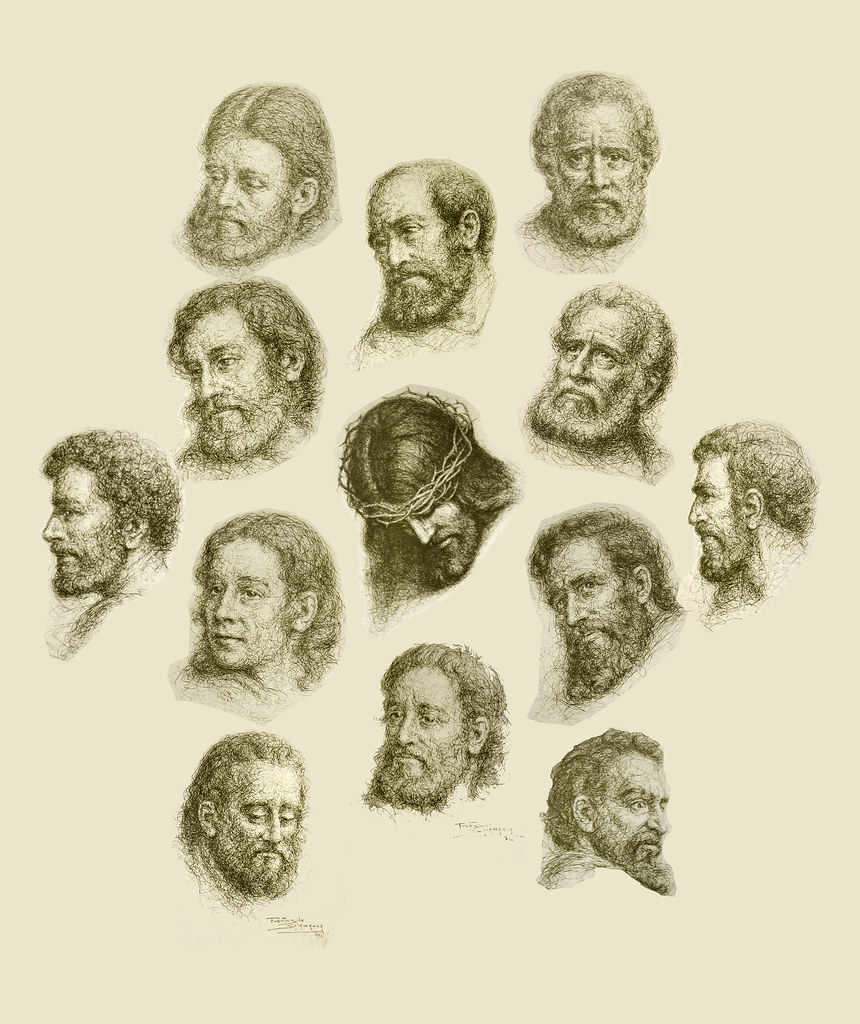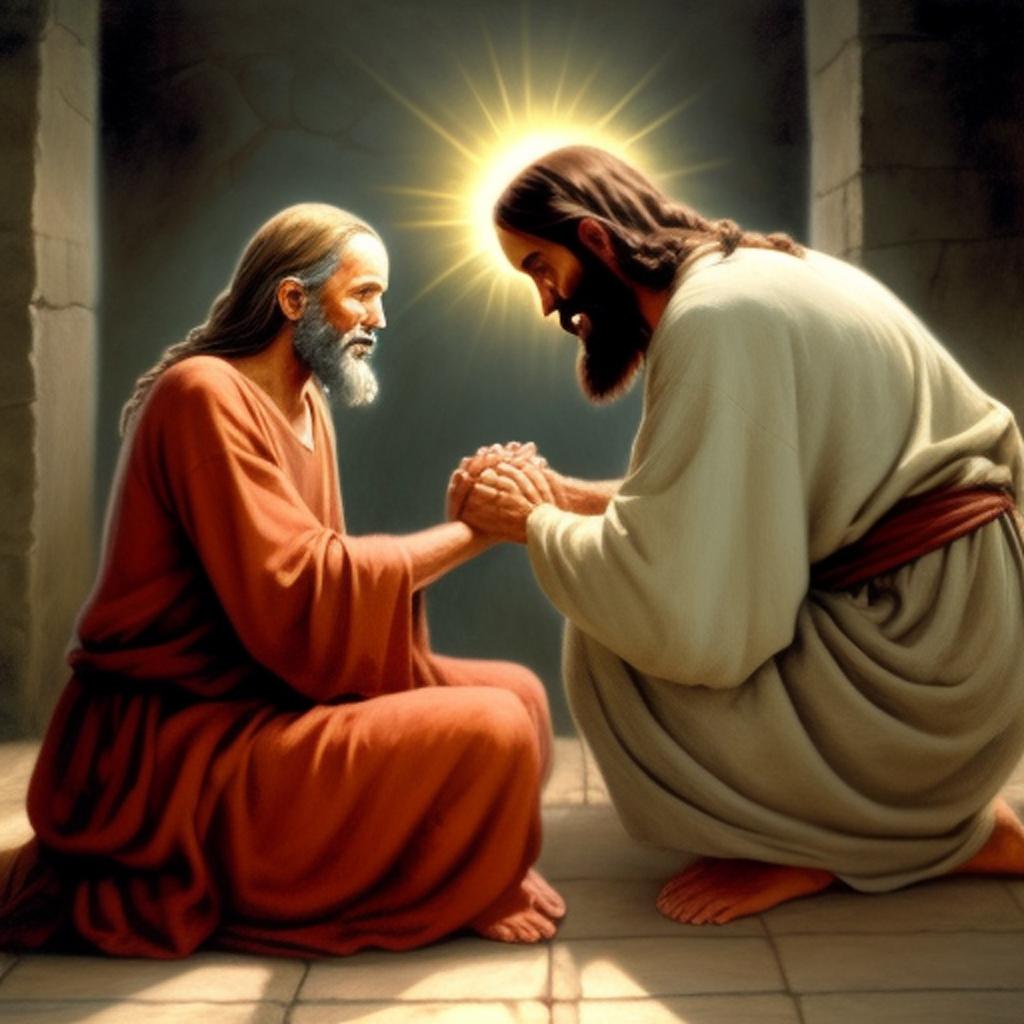Unveiling the Messianic Mystery of Numbers 12: A Prophetic and Symbolic Connection to Jesus and the Gospel
This article explores the prophetic, symbolic, and messianic connection between Numbers 12 and Jesus and the gospel, examining specific passages, symbolic foreshadowing, and the significance of Numbers 12 in relation to the messianic expectations and fulfillment in the gospel.

Photo by Aaron Burden on Unsplash | Commercial use allowed
Overview of Messianic Prophecies
The Christian belief in Old Testament prophecies about the messiah is deeply rooted in the understanding that these ancient texts contain numerous references to the coming of a savior who would deliver and redeem humanity. One of the most well-known prophecies is the prediction of the messiah’s birth in Bethlehem, a significant element in the narrative of Jesus’ life as recorded in the New Testament. Additionally, the prophecy of a virgin mother giving birth to the messiah, the fulfillment of miracles, the sacrificial death for the sins of others, and the subsequent resurrection are all regarded as significant messianic prophecies by Christians. For example, the prophecy in Isaiah 7:14 about a virgin conceiving and giving birth to a son is often seen as a direct reference to Jesus’ miraculous conception and birth to the Virgin Mary in the New Testament. Similarly, the prophecy in Micah 5:2, which foretells the birth of the messiah in Bethlehem, aligns with the Gospel accounts of Jesus’ birthplace. These specific examples illustrate the Christian interpretation of Old Testament passages as predictions of Jesus, underscoring the foundational role of these prophecies in the Christian understanding of Jesus as the messiah.
Moreover, the alleged messianic prophecies that are not universally accepted or are considered historically inaccurate by some critics raise questions and differing perspectives on the validity of these interpretations. This has led to ongoing debates and discussions regarding the nature of these prophecies and their fulfillment in Jesus, highlighting the complex interplay between religious interpretation, historical context, and theological significance in the study of messianic prophecies. The challenges and variations in interpreting these prophecies emphasize the depth of scholarly inquiry and the multifaceted nature of the dialogue surrounding the messianic prophecies in the Old Testament.
Prophetic References in Numbers 12
Numbers 12 holds significant prophetic references that connect to Jesus and are interpreted by Christians as messianic prophecies. One of the key passages in Numbers 12 is the account of Miriam and Aaron challenging the authority of Moses. Christians view this as a foreshadowing of the rejection of Jesus by the Israelites, his own people, and his subsequent exaltation as the ultimate authority. This event is believed to parallel the rejection of Jesus as the Messiah by the Jewish leadership and the ultimate exaltation of Jesus as the divine authority over all creation. Additionally, Numbers 12:6-8 presents another prophetic reference that Christians connect to Jesus. In this passage, God speaks of His unique relationship with Moses, saying, “Hear my words: If there is a prophet among you, I the Lord make myself known to him in a vision; I speak with him in a dream. Not so with my servant Moses. He is faithful in all my house. With him, I speak mouth to mouth, clearly, and not in riddles, and he beholds the form of the Lord” (Numbers 12:6-8 ESV). Christians interpret this as a foreshadowing of Jesus’ unique relationship with God the Father. They see Jesus not only as a prophet but as the ultimate revelation of God, as stated in the New Testament. This prophetic connection emphasizes the special, unparalleled relationship that Jesus has with the Father, setting him apart as the divine Son of God.
Another example of a prophetic reference in Numbers 12 is the divine punishment of Miriam with leprosy and the subsequent intercession by Moses for her healing. This narrative is often seen as a foreshadowing of Jesus’ redemptive role as the ultimate intercessor between God and humanity. Just as Moses interceded on behalf of Miriam, Jesus intercedes for humanity through his sacrificial death, mediating between God and people, thereby reconciling them to God. These prophetic references in Numbers 12 provide insight into the Christian interpretation of the Old Testament in relation to Jesus as the Messiah. By examining these passages, Christians seek to find continuity between the Old Testament and the life, ministry, and significance of Jesus in the New Testament, reinforcing their belief in Jesus as the fulfillment of ancient prophecies.
Symbolic Foreshadowing in Numbers 12
The symbolic foreshadowing in Numbers 12 extends beyond Moses’ role as an intercessor to other elements that point to Jesus. The cloud that descends and the Lord’s rebuke of Miriam and Aaron also hold symbolic significance. The cloud represents the divine presence and serves as a foreshadowing of the Holy Spirit, who descended upon Jesus at his baptism, signifying his divine anointing for his redemptive mission. This symbolic connection underscores the divine preparation and empowerment of Jesus for his earthly ministry, emphasizing the continuity between the Old Testament events and the messianic fulfillment in the New Testament.
Additionally, the Lord’s rebuke of Miriam and Aaron for speaking against Moses carries symbolism related to Jesus’ authority. Jesus, as the ultimate prophet and leader, faced opposition and rejection, similar to Moses. The rebuke in Numbers 12 foreshadows the challenges and resistance that Jesus would encounter during his earthly ministry, emphasizing the messianic significance of the events in Numbers 12. This symbolic layering enriches the understanding of how Numbers 12 connects prophetically and symbolically to Jesus and the gospel, deepening the theological implications of these Old Testament passages.
Furthermore, the events in Numbers 12 can be seen as symbolic of the broader narrative of God’s redemptive plan for humanity. The challenges faced by Moses and the subsequent divine intervention and resolution serve as a prefiguration of the adversities and triumphs that Jesus would experience in his mission to bring salvation to humanity. The symbolism in Numbers 12 thus extends beyond individual elements to encompass the overarching themes of divine preparation, authority, and the ultimate fulfillment in Jesus Christ.
#MessianicForeshadowing #JesusAndNumbers12 #PropheticConnections #BiblicalSymbolism #OldTestamentProphecy #Numbers12InGospel #MosesAndJesus #DivineVindication #MessianicReferences #BiblicalTypology #GospelProphecy #DivineIntervention #SymbolicForeshadowing #BiblicalCompleteness #DivineGovernance #NumbersSymbolism #BiblicalWholeness #RedemptiveSymbolism #MessianicThemes #MessianicSymbols #DivineAuthority #MessianicImagery #Numbers12Prophecy #MessianicSignificance
Messianic Significance of Numbers 12
The messianic significance of Numbers 12 in relation to Jesus goes beyond the surface narrative and delves into the parallel themes that resonate with the gospel. In Numbers 12, the confrontation between Moses, Aaron, and Miriam unveils the challenges faced by a chosen leader. This foreshadows the rejection and opposition Jesus encountered during His earthly ministry. Both Moses and Jesus faced resistance from those closest to them. Moses was challenged by his own family members, while Jesus faced disbelief and rejection from His own people and even His disciples. This parallel illustrates the inherent struggles and opposition that are intertwined with the messianic mission.
Furthermore, the divine vindication of Moses and the subsequent punishment of Miriam for her opposition are symbolic of Jesus’ eventual triumph over rejection and His ultimate vindication through resurrection. The events in Numbers 12 echo the theme of rejection followed by divine affirmation, mirroring the rejection of Jesus by His own people and His resurrection, which became the ultimate confirmation of His messianic identity. This connection underscores the overarching narrative of God’s redemptive plan, where the challenges and vindication of Moses prefigure the rejection and ultimate triumph of Jesus, thus reinforcing the messianic significance of Numbers 12 in the broader context of the gospel.
Moreover, the events in Numbers 12 can be seen as contributing to the typology of Moses as a precursor to Jesus. Typology is a theological concept that recognizes individuals, events, or institutions in the Old Testament as prefiguring or foreshadowing truths and realities in the New Testament. The challenges, intercession, and vindication experienced by Moses in Numbers 12 can be understood as a type or foreshadowing of the corresponding aspects in the life and mission of Jesus Christ. This typological connection highlights the intricate relationship between the Old Testament narratives and the fulfillment found in Jesus, deepening the messianic significance of Numbers 12.
Gospel Connection to Numbers 12
The events in Numbers 12 not only serve as historical narratives but also hold a profound connection to the gospel message. One of the key connections is the theme of rejection. In Numbers 12, Moses, the chosen leader of the Israelites, faced opposition and rejection from his own family. Similarly, in the gospel accounts, Jesus, the prophesied Messiah, faced rejection from his own people, the Jews, and even from his family members. This parallel highlights the common thread of rejection experienced by both Moses and Jesus, emphasizing the challenges faced by chosen leaders in carrying out their divine missions.
Moreover, Numbers 12 also illustrates the theme of intercession. When Miriam and Aaron opposed Moses, he interceded for them, pleading with God for Miriam’s healing. This act of intercession reflects Jesus’ role as the ultimate intercessor between God and humanity. In the gospel, Jesus intercedes for humanity through his sacrificial death, mediating between God and people, thereby reconciling them to God. The connection between Moses’ intercession for Miriam and Jesus’ intercessory role in the gospel underscores the consistent biblical theme of intercession as a means of restoration and reconciliation.
Furthermore, the events in Numbers 12 culminate in divine vindication, where God defends Moses against the accusations of Miriam and Aaron. This divine intervention serves as a prefiguration of Jesus’ ultimate vindication through his resurrection. In the gospel, Jesus’ resurrection stands as the ultimate proof of his divine mission and vindication by God, validating his claims and affirming his identity as the Son of God and the promised Messiah. This connection highlights the consistent pattern of God’s intervention and vindication of his chosen servants, as seen in both Numbers 12 and the gospel accounts of Jesus’ life.
Moreover, the events in Numbers 12 can be seen as contributing to the broader theme of divine preparation and empowerment. The challenges faced by Moses and the subsequent divine intervention and resolution serve as a prefiguration of the adversities and triumphs that Jesus would experience in his mission to bring salvation to humanity. The symbolism in Numbers 12 thus extends beyond individual elements to encompass the overarching themes of divine preparation, authority, and the ultimate fulfillment in Jesus Christ. This comprehensive interweaving of themes and connections emphasizes the seamless continuity between the Old Testament narratives and the gospel message, reinforcing the profound significance of Numbers 12 in the broader context of biblical theology.
The Number Twelve in Biblical Symbolism
The number twelve holds great significance in the Bible, often symbolizing completeness and perfection. It is not just a random number, but a recurring symbol of divine order and authority. For instance, the twelve tribes of Israel and the twelve apostles in the New Testament are prime examples of how this number is associated with wholeness and divine governance. The use of the number twelve in Numbers 12 underscores the divine authority and completeness of the passage, hinting at its profound symbolic and prophetic implications.
In Jewish and Christian traditions, the number twelve is deeply rooted in the fabric of religious symbolism. It’s not just a matter of counting to twelve, but rather a representation of totality, wholeness, and completion. From the twelve foundations of the New Jerusalem to the twelve legions of angels in Jesus’ teachings, the number resonates as a powerful symbol throughout the Bible. When examining Numbers 12 in this light, it becomes evident that the use of this specific number is intentional, weaving a tapestry of divine significance into the narrative. Therefore, the presence of the number twelve in Numbers 12 is not coincidental but serves to emphasize the completeness and divine authority of the events described in the passage, aligning them with the overarching themes of biblical symbolism and prophecy.
Furthermore, the number twelve is intricately connected to the expression of divine order and governance throughout the biblical narrative. It appears in various significant contexts, such as the twelve sons of Jacob who became the heads of the twelve tribes of Israel, and the twelve apostles chosen by Jesus to establish the foundation of the early church. The consistent use of the number twelve to represent divine completeness and authority underscores its profound significance in shaping the theological landscape of the Bible. This pervasive presence of the number twelve highlights its role as a symbol of divine governance and completeness, emphasizing its relevance to the events and themes in Numbers 12.
Moreover, the number twelve is not confined to the Old Testament but finds resonance in the New Testament as well, particularly in the establishment of the twelve apostles by Jesus. The deliberate selection of twelve apostles reflects the continuity between the Old Testament symbolism of the twelve tribes of Israel and the new covenant community founded by Jesus. This interconnectedness underscores the enduring significance of the number twelve as a symbol of divine completion and governance, aligning it with the prophetic and symbolic elements found in Numbers 12. This broadened understanding of the number twelve as a pervasive symbol of divine completeness and authority enriches the interpretation of its presence in Numbers 12, deepening the theological implications of its significance in biblical symbolism.
The Twelve Tribes of Israel and Apostles
The significance of the twelve tribes of Israel in relation to the events in Numbers 12 lies in the foundational role they play in the Old Testament narrative. The twelve tribes were the descendants of the twelve sons of Jacob, also known as Israel, and they formed the basis of the nation of Israel. This historical context is crucial in understanding the symbolic and prophetic implications of Numbers 12 in connection to Jesus and the gospel. The establishment of the twelve tribes represents the divine order and completeness intended by God for His chosen people, reflecting the wholeness and perfection associated with the number twelve in biblical symbolism.
Moreover, the twelve tribes of Israel hold deep theological significance as a representation of God’s covenant with His people. The covenantal relationship between God and the twelve tribes of Israel serves as a foundational element in the Old Testament narrative, reflecting the divine governance and completeness symbolized by the number twelve. This covenantal framework provides a backdrop for understanding the prophetic and symbolic elements in Numbers 12 in relation to the messianic fulfillment in Jesus Christ. The interplay between the Old Testament covenant community represented by the twelve tribes and the New Testament community established by Jesus and the twelve apostles underscores the enduring theological significance of the number twelve in shaping the biblical narrative.
Furthermore, the twelve apostles in the New Testament hold a parallel significance to the events in Numbers 12. Just as the twelve tribes were the foundation of the Old Testament covenant community, the twelve apostles were the foundational leaders of the New Testament church, established by Jesus himself. Their role in spreading the gospel and building the early church is intricately linked to the messianic fulfillment and the prophetic symbolism found in the Old Testament, including the events depicted in Numbers 12. The connection between the twelve tribes of Israel and the twelve apostles emphasizes the continuity between the Old and New Covenants, underlining the divine authority and completeness represented by the number twelve in the biblical narrative.
The convergence of the twelve tribes of Israel and the twelve apostles in relation to the events in Numbers 12 illuminates the overarching themes of divine order, completeness, and the continuity of God’s redemptive plan throughout salvation history. This interconnectedness underscores the prophetic, symbolic, and messianic significance of Numbers 12 in the broader context of biblical theology and the fulfillment of God’s promises in Jesus Christ.
Conclusion
In conclusion, Numbers 12 is a rich tapestry of prophetic, symbolic, and messianic significance that all point to Jesus and the gospel. The prophetic references in Numbers 12 can be seen in the parallels between Moses and Jesus, highlighting the authority and unique relationship with God that both figures embody. For example, just as Moses was chosen by God to lead the Israelites out of Egypt, Jesus is regarded as the ultimate deliverer who leads humanity out of spiritual bondage. This connection between Moses and Jesus provides a compelling prophetic reference that illustrates how Numbers 12 foreshadows the coming of Christ.
Furthermore, the symbolic elements in Numbers 12, particularly the challenge to Moses’ authority by his own family members, reflect the adversities and opposition that Jesus faced during his ministry. This symbolic foreshadowing serves as a precursor to the rejections and opposition that Jesus encountered, emphasizing the messianic significance of the events in Numbers 12. The parallels between the challenges faced by Moses and Jesus provide a deeper understanding of how Numbers 12 aligns with the messianic expectations and fulfillment in the gospel narrative.
Moreover, the number twelve in biblical symbolism is associated with divine completeness and authority, which is reflected in the twelve tribes of Israel and the twelve apostles. These connections intensify the significance of Numbers 12 in the broader context of biblical prophecy and symbolize the divine order and perfection inherent in the events of Numbers 12. The profound interplay of prophetic references, symbolic foreshadowing, and the use of the number twelve in Numbers 12 serves as a testament to the meticulous design of God’s redemptive plan, culminating in the revelation of Jesus Christ as the ultimate fulfillment of Scripture. The comprehensive interweaving of themes and connections emphasizes the seamless continuity between the Old Testament narratives and the gospel message, reinforcing the profound significance of Numbers 12 in the broader context of biblical theology.



